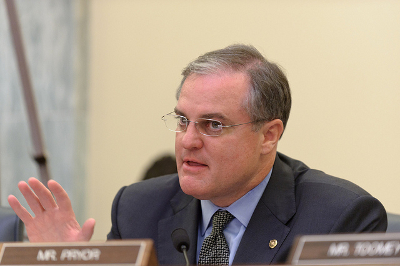 Last night saw the Republican Party retake the Senate, and win their largest majority in the House for more than 60 years. Michele Swers reflects on the results, writing that despite concentrating on state-level issues, many Democrats were dragged down by President Obama’s unpopularity and the national climate. She writes that while the Republican Party may be celebrating their victory today, they have kicked out many of the Democrats that would have been their allies on key issues such as trade and tax reform, meaning that legislative compromises are now even less likely.
Last night saw the Republican Party retake the Senate, and win their largest majority in the House for more than 60 years. Michele Swers reflects on the results, writing that despite concentrating on state-level issues, many Democrats were dragged down by President Obama’s unpopularity and the national climate. She writes that while the Republican Party may be celebrating their victory today, they have kicked out many of the Democrats that would have been their allies on key issues such as trade and tax reform, meaning that legislative compromises are now even less likely.
After the 2014 midterms, Republicans will control more House seats than at any time since the Truman presidency. Republicans exceeded expectations in the Senate winning races in the red states that voted for Romney for President in 2012 and reaching further to claim Senate seats in purple and blue states including North Carolina and Colorado. The wave almost engulfed Mark Warner, a popular Virginia Democrat who was not perceived as especially vulnerable before the election.

The 2014 elections seemed to solidify a trend toward nationalization of congressional elections. The elections were all about unhappiness with President Obama and his record. Moderate Democrats who had won multiple elections by trumpeting their independence from the party and their focus on state-level issues were not able to translate that record into victory. Thus, Arkansas’ Mark Pryor’s deep family ties to the state and his pro-gun, faith and family values message could not penetrate the toxic national climate. Mary Landrieu’s emphasis on her efforts to help the state after Hurricane Katrina and her chairmanship of the Energy and Natural Resources Committee may not be enough to triumph in her December runoff in Louisiana. In North Carolina, freshman Kay Hagan got high praise for her local focused campaign that went after State House Speaker Thom Tillis’s record of cutting education spending, yet she fell victim to the same national tides.
The loss of these moderates also has important implications for governing. As Republicans take over the Senate, they have lost some of their most likely allies on the Democratic side of the aisle. Democrats who might have been willing to vote for the Keystone pipeline and negotiate deals on trade agreements, tax reform, and scaling back aspects of Obamacare went down to defeat. Research on legislative success in divided government by Sarah Binder and others notes that moderate members on both sides of the aisle are more willing to negotiate legislative compromises and they are more likely to have the trust of their own party conference allowing them to bring votes to the table. Thus, a Mark Pryor (D-AR) would be more trusted by Democrats than his successor Tom Cotton (R-AR) who will be a reliable vote for the Republican caucus but not a natural dealmaker.
In the 60-vote Senate, Republicans will need both reliable partisans and some Democrats willing to talk to achieve their legislative agenda. Continued nationalization of Senate elections creates an even more polarized Senate with more reliably liberal Democrats and conservative Republicans. With Tea Party darlings and presidential hopefuls including Ted Cruz (R-TX), Rand Paul (R-KY), and Marco Rubio (R-FL) vying to burnish their conservative credentials for the Republican presidential primary electorate, presumed Majority Leader, Mitch McConnell (R-KY) will need some allies on the Democratic side to achieve results.
Featured image credit: MudflapDC (CC- BY-NC-SA-2.0)
Please read our comments policy before commenting.
Note: This article gives the views of the authors, and not the position of USApp– American Politics and Policy, nor of the London School of Economics.
Shortened URL for this post: http://bit.ly/1GprtQQ
_________________________________
 Michele Swers – Georgetown University
Michele Swers – Georgetown University
Michele Swers is an Associate Professor of American Government in the Department of Government at Georgetown University. Her research interests encompass Congress, Congressional elections, and Women and Politics. Her most recent book, Women in the Club: Gender and Policy Making in the Senate (University of Chicago Press 2013) examines the impact of gender on senators’ policy activities in the areas of women’s issues, national security, and judicial nominations.





